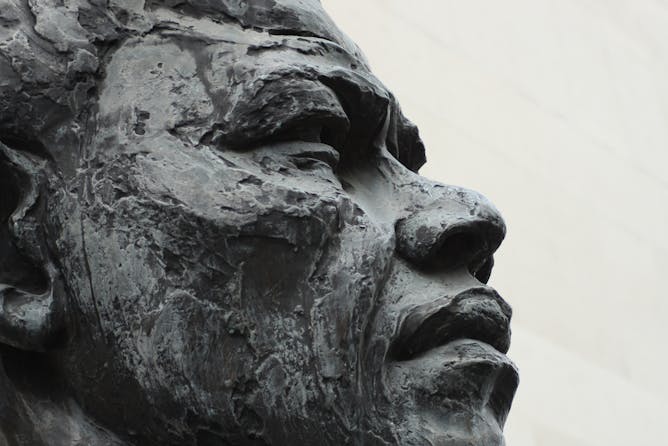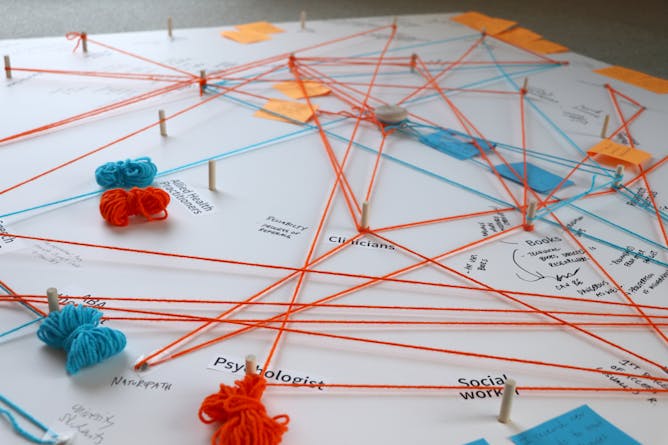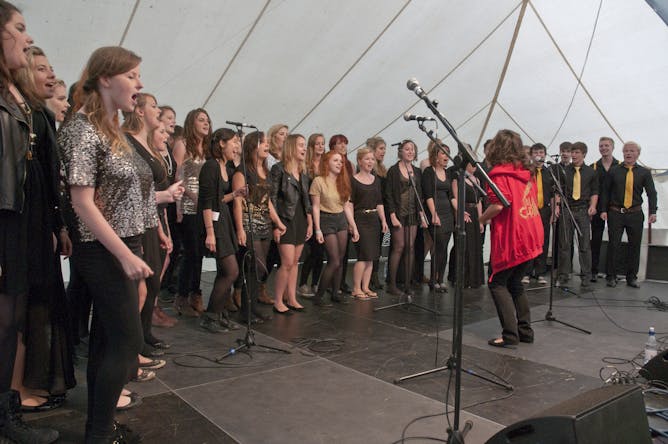|
The world too often seems like a scary place these days. Nuclear tests in North Korea. Horrific conditions for refugees around the world. The rise of empowered racists everywhere. Today in The Conversation Canada, Ian Spears, a political scientist at the University of Guelph who specializes in conflict and conflict resolution, explains that most people naturally strive for solutions to major problems without resorting to conflict. But Prof. Spears says conflict is sometimes necessary because “those driven by a desire to upend the status quo in the interest of justice or liberation are often fully prepared to use violence to achieve their goals.”
More than half a million Canadians are affected by the neurological disorder called autism spectrum disorder (ASD) and its impact on children can be devastating. Caylee Raber is the director of the Health Design Lab at Emily Carr University and she explains how her lab is using design techniques to help families cope with various ASD issues. It’s a really fascinating look at how people are being helped through innovative solutions.
We’ve got another story about a different kind of innovation that’s also happening in British Columbia. David Beers, an adjunct professor at the School of Communications at Simon Fraser University, writes about a growing trend in the world of journalism – “coopetition.” That’s the word he uses to describe “a news media ecosystem in which surviving means competing yet also collaborating.”
And finally, do you remember your first summer job? John Burge, a professor of composition and theory at Queen’s University, has highlighted a unique experience in which the Kingston Chamber Choir used the Canada Summer Jobs program to hire a student to write an original composition for a concert held this month. We’ve included a video of the composition so you can see it for yourself.
One final thing: many thanks to loyal Conversation reader Mary Henricksen who pointed out our newsletter yesterday had a math problem….Barack Obama was elected U.S. president nine years ago, not eight as we said. Not sure which year we lost along the way….
Regards,
|

This sculpture in London commemorates Nelson Mandela, who set up the African National Congress’ armed wing, Umkhonto we Sizwe (Spear of the Nation), in 1961 when he lost hope that passive and non-violent resistance to the apartheid government would bear fruit.
(Creative Commons)
Ian Spears, University of Guelph
Seeking justice, not peace, in our world changes the conversation about conflict. Conflict has proven integral to achieving a more equitable and secure society.
|

Approximately 87,000 children in Canada are affected by autism. A new web platform promises to help their families access much-needed research knowledge.
Caylee Raber, Emily Carr University
Families supporting children with autism urgently need better access to the latest research about evidence-based treatments. A new health design project from Emily Carr University is helping.
|

Why has B.C. become home to Canada’s most vibrant news ecosystem? Credit the wellspring of creativity here — the province’s beauty and potential has long attracted change-makers.
(Shutterstock)
David Beers, Simon Fraser University
A good news story about the news? It's true. In British Columbia, a digital news ecology is flowering through ‘coopetition’ – as Media Democracy Day will soon showcase.
|

Using federal funding to hire a student composer for the summer is an innovative idea to help support young creative talent.
(Shutterstock)
John Burge, Queen's University, Ontario
The Canada Summer Jobs program allowed the Kingston Chamber Choir to hire a student to write an original composition. Other arts organizations should follow suit to employ students in creative fields.
|
Politics
|
-
Jeff South, Virginia Commonwealth University
It's time for newspapers to stop telling their dwindling number of subscribers how to vote.
|
|
Health + Medicine
|
-
Caroline T. Tiemessen, National Institute for Communicable Diseases
A South African child, who has been in HIV remission for nearly nine years, could help researchers understand how to make remission possible for millions of other HIV positive people.
|
|
Science + Technology
|
-
Cameron Hunter, University of Bristol
Dreams of new footprints on the moon are more about domestic politics than foreign policy.
|
|